Reports

Demands for data connectivity, especially for wireless connectivity anytime, anywhere, are constantly increasing. Data communication parameters must be tested and measured. This can be done using a device called F-Tester® developed at the Faculty of Electrical Engineering (FEL), which can now also measure 5G networks.
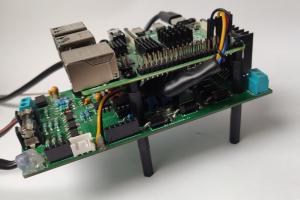
The ninth annual Electrotechnical Olympics brought a significant increase in the interest of competitors. More than 300 registered high school students took the knowledge test in the field of electrical engineering. Perfect knowledge was demonstrated by 19 participants who passed the test with 100% success. In the follow-up phase of the competition, the jury evaluated 25 technically oriented presentations that the participants developed with the support of their high schools from all over the Czech Republic. The ten best-ranked projects then advanced to the final round, which took place on 10 December 2021 in the online environment of MS Teams.
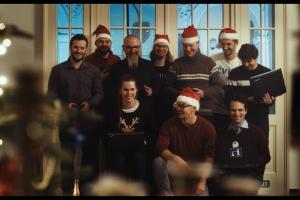
Watch in a short video how our Christmas card was made with FEL CTU robots and researchers in the main roles. The Christmas video with robots has so far been viewed by more than 25 thousand people on social media of the Faculty of Electrical Engineering of CTU.
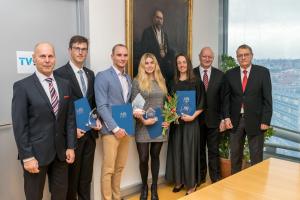
2021/12/16
On 14 December, the best CTU athletes for 2021 were awarded. The first three places were taken by canoe slalom racers Vít Přindiš, Martina Satková and Antonie Galušková. The rector of CTU, doc. Vojtěch Petráček, awarded four athletes in the presence of Director doc. Jiří Drnek and doc. Zdeněk Valjent of the Institute of Physical Education and Sport of CTU. In the poll for the best CTU athlete for 2021, 17 athletes were selected.

Klára Janoušková, a student of Open Informatics at the Faculty of Electrical Engineering of CTU, has been working on computer vision, specifically on text detection and recognition, for example on a photo taken on the street. With this project, Klára has already completed an internship at the University of Barcelona. Currently, her one-semester internship in Zurich, Switzerland, is coming to an end after she had successfully passed the demanding selection process for the IBM Great Minds program.
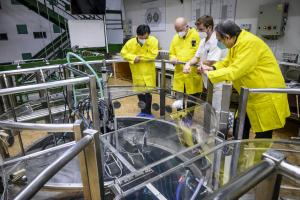
Ambassador Tae Jin Kim of the Republic of Korea visited the VR-1 Vrabec nuclear reactor operated by the Faculty of Nuclear and Physical Engineering of CTU in Prague (FJFI) in early December 2021. He was accompanied by the Rector of CTU doc. Vojtěch Petráček, Dean of the FJFI prof. Igor Jex and Head of the Department of Nuclear Reactors Jan Rataj.

Filip Bernard, Jan Pernekr and Jan Petrš became the winners of the first year of the Dean's Awards competition for the best student projects developed in the past academic year. The award ceremony took place on 24 November during the celebration of the 45th anniversary of the re-establishment of the independent Faculty of Architecture in the Jaroslav Fragner Gallery.
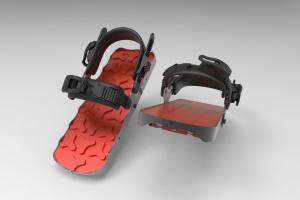
2021/12/14
A total of eight competition designs by students of the Faculty of Architecture of Czech Technical University impressed the jury of the National Award for Student Design so much that they won awards in a competition of a record 269 submitted projects. The winner was Vojtěch Veverka with his design for Bigfoot, an original ski and snowshoe in one.

Watch in a short video how our Christmas card was made with FEL CTU robots and researchers in the main roles. The Christmas video with robots has so far been viewed by more than 25 thousand people on social media of the Faculty of Electrical Engineering of CTU.
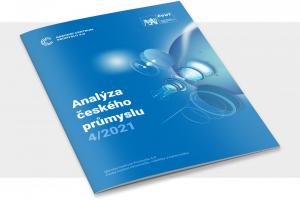
The National Centre for Industry 4.0 prepared the fourth edition of the Analysis of Czech Industry 4/2021 on the occasion of independent debate of industry leaders - the Barometer of Czech Industry, which took place on 10 December. The survey was conducted in October and November 2021.